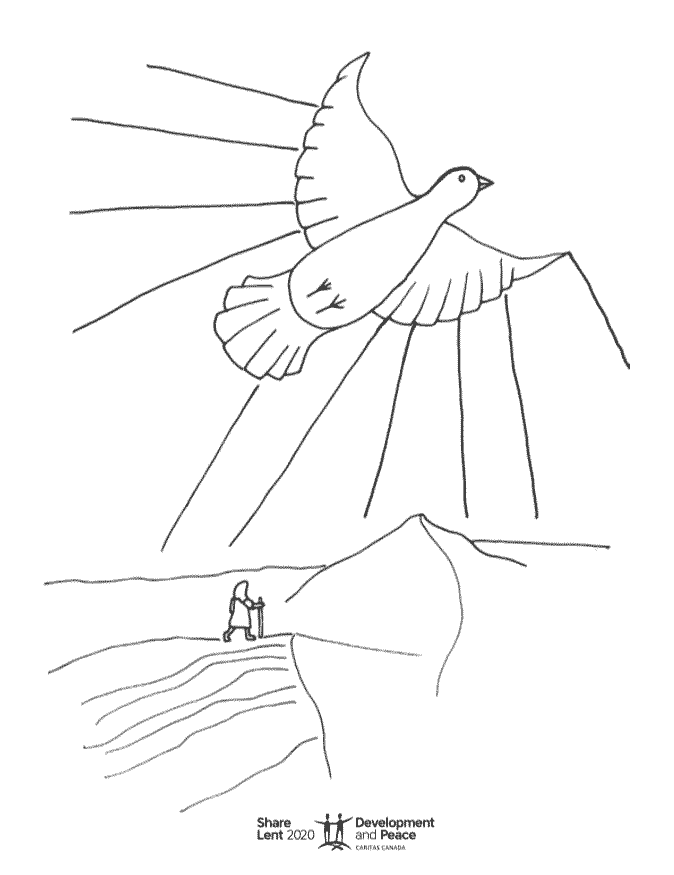Gospel: Matthew 4: 1-11
Ecological conversion and the challenge of the temptation in the desert
In Laudato Si’, Pope Francis calls us to an ecological conversion in our efforts to care for our common home. Quoting his predecessor, he says “the external deserts in the world are growing, because the internal deserts have become so vast. For this reason, the ecological crisis is also a summons to profound interior conversion (LS,217).” The desert is the setting of today’s Gospel – the place where Jesus is “led by the Spirit” and tempted by the Devil after 40 days and nights of fasting. The temptation in the desert gives us much to consider as we reflect on our own ecological conversion this first Sunday of Lent.
For those of us who have easy access to the abundance of material products produced by the global socio-economic order our time, today’s Gospel and its theme of temptation are particularly significant. This is because, in many ways, that system and access to its products are part of what creates the need for ecological conversion in the first place.
Consider the first temptation Jesus faces – satisfy your hunger by turning stones into bread. Can we think of ways in which, through technological innovation, our society attempts to turn stones into bread? Efforts to interrupt the very logic of God’s Creation itself can result in terrible and unintended ecological consequences. Indeed, what turns stones into bread for the few, may turn bread into stones for the many. For example, the imposition of industrialized agriculture on large swaths of the planet can have the effect of enriching a few, while impoverishing many.
The Devil tempts us, like he tempted Jesus, to push the very limits of the created order, to cast himself off the cliff that he might be saved by the angels. Rather than choosing the call to ecological conversion, our world is increasingly choosing to recklessly jump off the cliff, believing that there is nothing we can do to God’s Creation that can cause irreparable harm to our souls. Even more dangerously, people fall into the trap of believing that the state of the world and the relationship between its peoples have no bearing on the state of our souls at all!
Finally, in the third temptation, Jesus is offered “All the kingdoms of the world,” if he will only bow down and worship Satan. What do we do when we too are offered the domination of the planet and entire peoples by virtue of the places we occupy in the global socio-economic order? How do we respond when we are shown that our access to cheap consumer products comes with a human and environmental cost? The worship of Satan is the acceptance that this is simply the way of the world that we must accept. The refusal to do this is the path of ecological conversion. It is the path that recognizes, “the Lord, your God, shall you worship and him alone shall you serve.” We cannot serve God while assaulting each other and the earth in an ill-fated quest for worldly power and domination.
The temptations faced by Christ in the desert are faced by all people of the earth. But from the perspective of a call to ecological conversion, they are exceptionally present wherever what we often simply refer to as “privilege” exists. This Lent, let us pay extra attention to the need to address the interior deserts within us that leave us weak in the face of temptation and cultivate a Laudato Si’ spirituality that can help us embrace the call to ecological conversion.
We are offering six weekly reflections that connect the proposed Gospel readings for the Sunday liturgy with our campaign theme. They will be published every Monday on our website or are accessible in the Resources section. This Lent, give from the heart For our Common Home!


Get your pencils ready!
For families with young children, we invite you to discover the weekly Gospel reflections of the 2020 Family Bulletin. Each reflection is accompanied by an illustration. Click on the image to download the illustration and reflection for this Sunday.

